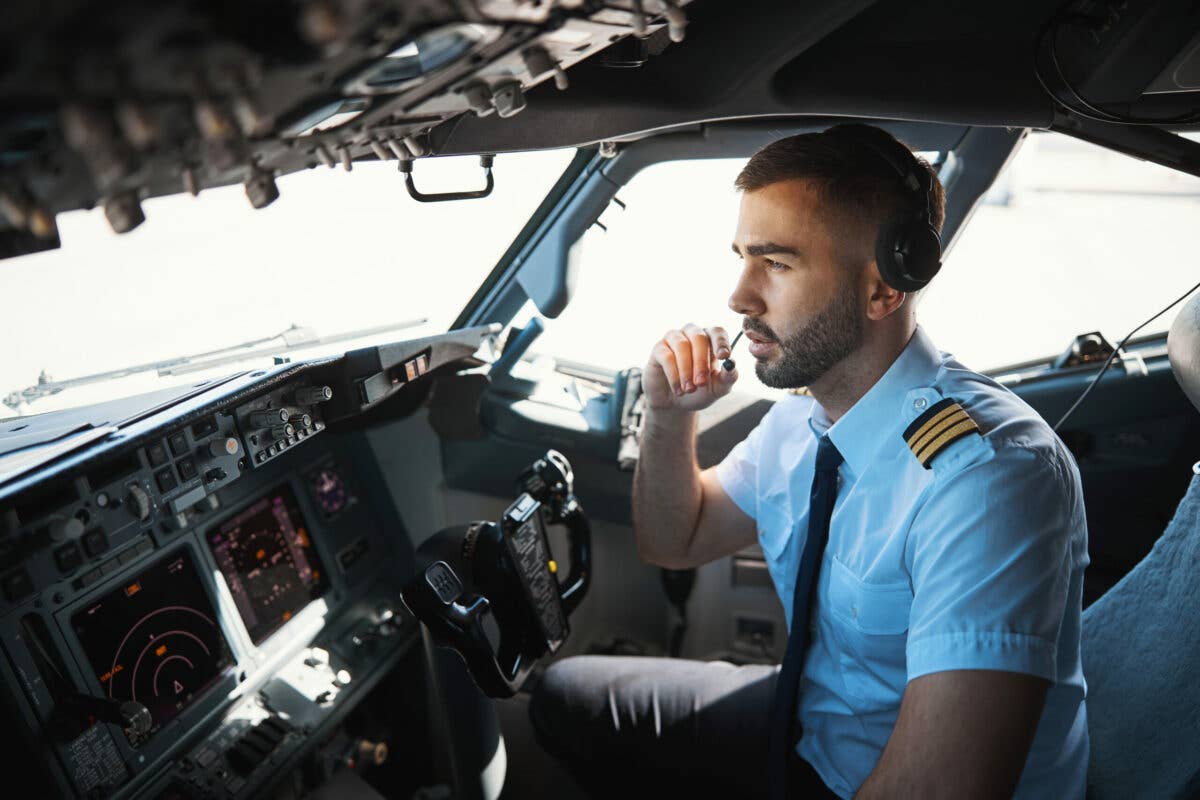Single Pilot Ops ‘A Profit-Driven Scheme,’ Pilot Unions Say
Only one pilot on the flight deck is a “significant safety risk,” the international group of commercial pilot unions said in a joint statement.

Single pilot operations in commercial aircraft are “a profit-driven scheme that poses a significant safety risk,” the group of pilot labor unions said in a joint statement. [Credit: Shutterstock]
Single pilot operations in commercial aircraft are “a profit-driven scheme that poses a significant safety risk," according to leaders of the world’s largest pilot labor unions.
In a joint statement, representatives from the Air Line Pilots Association (ALPA), the International Federation of Air Line Pilots’ Associations (IFALPA), and the European Cockpit Association (ECA) called on airlines and manufacturers to rethink plans for single pilot operations.
According to the groups, two pilots at the controls remains the most important safety feature of an aircraft, and technology, no matter how sophisticated, “is not a replacement for pilots on the flight deck.”
The groups went on to say, “Whether you depart from New York, San Francisco, or Atlanta bound for London, Paris, or Tokyo, a crew of at least two qualified, experienced, trained, and rested airline pilots is at the controls on the flight deck of your plane. Every aspect of your flight—the aircraft, its systems, the regulations and standards that apply to the flight, and the procedures that pilots follow—is deliberately designed for a team working together on the flight deck.”
Still, more than 40 countries have asked ICAO, the body that sets aviation standards, to help make single-pilot operations a reality. Additionally, the European Union Aviation Safety Agency (EASA), Europe’s equivalent to the FAA, is working to study regulatory requirements for single pilot procedures—noting that the change could begin as soon as 2030.
Proponents of the idea argue that removing one pilot from the flight deck would lower costs and ease crew shortages. Others say the advancements in technology are shaping the future, while human error is often a factor in aircraft accidents.
However, the idea of single-pilot operations is wildly unpopular among the pilot community and could be a hard sell for the flying public.
Boeing Southeast Asia President Alexander Feldman said, “The technology is there for single pilots, it’s really about where the regulators and the general public feel comfortable.”
But recent events have only validated the need for a second pilot. In November, an American Eagle flight flying from Chicago O’ Hare (KORD) to John Glenn International Airport (KCMH) had to return 30 minutes into the flight due to pilot incapacitation. Just last week, on March 22, an off-duty pilot stepped in, assisting with radio communication and helped land a Southwest flight after the Captain suffered a medical emergency and became incapacitated.
Together, ALPA, ECA, and IFALPA have vowed to take action with ICAO on the matter and will counter any move toward single pilot operations.
“Some in the international airline industry want to put profit before safety. However, airline pilots around the world will not allow them to risk or roll back the industry safety record we’ve fought for decades to build—and on which passengers and shippers depend,” noted the groups.

Subscribe to Our Newsletter
Get the latest FLYING stories delivered directly to your inbox






